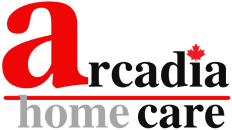What you mean by cognitive stimulation and behavior management and why it is helpful?
Share
Cognitive Stimulation is used to describe any action taken to maintain or improve the gaining of knowledge and its use. Many people believe that an individual with dementia is just going to gradually decline in their ability to remember, make judgments, relate to other people, know where they are, who they are, when it is, and express their personality. This is not the case. Other medical conditions, traumatic events, a lack of interaction, and even a bad cold or other everyday illness can affect the individual’s ability in any or all of these areas. Constant vigilance by a qualified professional can identify areas of interest and opportunities for improvement in many areas of functioning.
Sometimes, Cognitive Stimulation is as simple as having a conversation, listening to music, or watching a television show together; observing and listening to the individual’s responses, and encouraging increased socialization. Cognitive Stimulation can also involve introducing activities—games, or crafts that offer challenges in learning, remembering, and coordination. It may include reality orientation—assisting the individual in identifying the time, date, location, and others present. The use of a specific tone of voice, music, repetition, etc., throughout the day can reinforce or reintroduce memories that may seem to be lost.
At Arcadia Home Care, we ensure that our staff has the knowledge and experience to understand the individual and “go into their world” to join them on their journey and find ways to make it more comfortable and enjoyable. Behavior management refers to strategies used to encourage and support appropriate and independent activities.
Incontinence is a common aging problem and is often accepted as irreversible when an individual is diagnosed with Alzheimer’s or related dementia. However, it can often be reduced or delayed by understanding an individual’s ‘signals’ and introducing a regular toileting routine. Simple adjustments to the bathroom and personal products can also promote independence. Agitation, aggression, and even violent behavior may accompany other symptoms of dementia. Again, understanding the individual (and the disease), identifying distressing activities or events, and reducing or eliminating these can encourage appropriate behavior and support independence. These often relate to eating, bathing, grooming, toileting, sleeping, and socialization. Timing, lighting, noise adjustment, and language use, including the tone of voice, can all be used by qualified professionals to reduce distress and agitation.
At Arcadia Home Care, we work closely with the individual’s physician, other health care professionals, and the family to develop an individualized plan to address these areas. Please call our Care Managers at (416) 977 0050 ext. 1. We can help you assess the type of home care your loved one(s) may need to keep them safe and as independent as possible.


